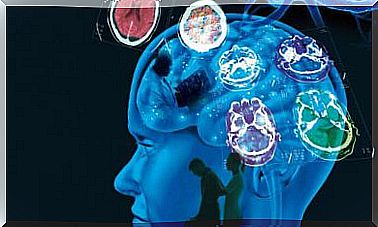Anxiety Management And The Power Of Patience

The head often goes faster than life itself. One of the keys to slowing down is to practice the power of patience. Try to nurture a positive view of the world while cultivating the ability to wait. Make room for a habit that allows you to let go of anxiety, pressure and worries. That way, you let things happen at their own pace and at the right moment.
Experts seem to have different opinions about whether impatience is a learned behavioral pattern or a trait that some people are born with. Whatever the case, one thing is clear: Our social context promotes this feeling of dissatisfaction and makes us want immediate results. Therefore, it is difficult to wait for things. People end up feeling constantly helpless when they realize that things are not under their control.
Which comes first: Anxiety or impatience?
We also do not know if our impatience leads to anxiety or if the anxiety itself makes us less tolerant of waiting. Still, what we do know is that the two are a perfect couple that triggers stress and an overactive brain. They can cause insomnia, fatigue, difficulty concentrating, lack of motivation, and of course unhappiness.
A basic, yet effective strategy for regulating these emotions is to develop patience. It is important to understand that cultivating patience is not an easy task. This is because the brain gets used to certain thought patterns. If you introduce your brain to a calmer and more optimistic approach, it will show some resistance. However, it is possible to cultivate patience.

The power of patience for a better quality of life
The result of constant impatience is anxiety. The combination of the two can be devastating. They can lead to physical problems such as muscle pain, headaches, palpitations or digestive problems. Impatience is like malicious software being installed in your brain. Once there, it begins to activate cognitive distortion mechanisms.
It starts as soon as you wake up. If the coffee does not brew fast enough, or the bus that takes you to work is a minute late, you assume you will have a bad day. If you do not complete the plan for the project you had in mind today, you know that you will feel frustrated and desperate. Therefore, having a hurry like a poison distorts your mind and mood.
Albert Ellis, the famous cognitive psychotherapist and advocate of rational emotional behavior therapy, talked about the effects of uncontrolled anxiety. If your anxiety runs wild, it will take over your life. As such, patience is the ideal approach to help you regain control.
Self-regulation is the key to patience
In January 2018, the University of North Florida in Jacksonville conducted an interesting study on the power of patience. Dominik Guess, professor of psychology, was the lead researcher of the study. The study showed that in certain cultures, patience is more meaningful to people due to a very specific psychological function: self-regulation.
- Self-regulation is above all self-control. In other words, it is the ability that allows you to deal with yourself and your reactions to pressure and external events.
- The approaches to working with self-regulation require that you develop the following characteristics:
- Reflection.
- Emotional management.
- Self-control.
- Self-confidence.
- Social skills.
- Tolerance.

Train the four pillars of patience
We need to clear up some ideas about patience. People often misunderstand patience and relate to passivity, resignation, or the simple ability to wait for something. To get a clearer picture of what it really means, let’s look at the pillars of patience. These are qualities that you should start developing today:
- Patience is freedom. It is an emotionally liberating practice that teaches you to wait, observe and know when to act.
- Patience is compassion. This aspect of patience involves being respectful of yourself. You should not be harsh with yourself, just because you are not able to do things that you expected. You need to help yourself, value yourself and learn to be your own best ally.
- Patience leads to movement and action. Patient people do not sit still. Nor have they given up, or are isolated from reality. On the contrary, the power of patience gives you the ability to save energy for action. It allows you to take advantage of your intuition so that you can better understand when the best time to act is.
- Trust and optimism are the seeds of effective patience. Patience implies a degree of confidence in inactivity. You have to believe that things will happen at the right time on your own. Having a head that goes faster than life itself is useless if everything important happens here and now.
Finally, remember that patience is concentrated strength. It is also a virtue people who have learned to control their emotions and thoughts have. These people know that everything has its moment.
Sometimes we try to hurry through life when it really has to be enjoyed and appreciated slowly. Relax, slow down, feel confident that you are moving in the right direction, and trust the power of patience.









